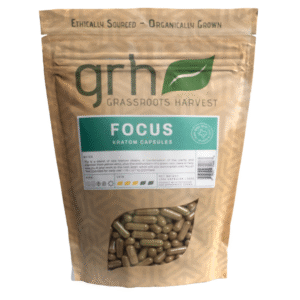As global interest within the cannabis industry continues to increase, more research into the naturally occurring herb is causing researchers to learn more about the complex nature of cannabis. This also includes gaining more insight into the underlying chemical compositor of cannabis plants – cannabinoids. As the industry grows it continues to move away gradually from the more mainstream Delta-9 THC and CBD. It’s embracing the more alternative cannabinoids, it is clear we will be learn about more cannabinoids as time goes by. This blog will go over a new question in the cannabis scene- what is HHC?
[product-block]
An example of a new cannabinoid is Hexahydrocannabinol. A D9 lookalike save for its heightened effects with little side effects. Within this article, we are going to be answering many questions! What is its chemical composition of HHC? What makes it any different from any of the numerous cannabinoids found within a cannabis plant?
HHC or Hexahydrocannabinol for short is a semi-synthetic cannabinoid. As a semi-synthetic cannabinoid, it means some elements of the cannabinoid was made in a lab. Another unique fact of HHC is the fact that it is hydrogenated when THC isn’t. This is why HHC is referred to as a hydrogenated version of THC.
Hydrogenation refers to a process that takes place when a chemical reaction between an active compound and hydrogen occurs. Upon the reaction, the molecular weight and molecular geometry of the compound morphs making the compound more stable. This new compound develops a higher resistance to heat and possesses an extended shelf life.
HHC is also referred to the Armageddon ready cannabinoid, this is because it was created to be sturdier than the naturally occurring THC. This is further visible when taking a closer look at its underlying molecular structure. To begin, HHC does not suffer from oxidation and breakdown the way THC does. This is because of its saturation with hydrogen, making it stronger than THC. This is further highlighted by this comparative study, where THC was shown to be one of the least stable cannabinoids. During the oxidizing process, THC loses its hydrogen atoms before forming two new double bonds. When this occurs, THC takes on another identity – CBN.
This is a justification for why old weed has been known to contain high measures of CBD as THC deteriorates gradually over the long haul. As indicated by research, CBD could be harnessed and made into various HHC isomers and other related subordinates. Moreover, CBD can likewise separate into THC invitro yet not in vivo. CBD’s change to HHC is one that doesn’t occur frequently outside of a lab.
In the year 2007, the department of Hygienic Chemistry, Hokuriku University shared a particularly exciting study of HHC. Within this study, evidence points to that CBD has the potential for conversion into HHC and Delta-9 THC. Scientists made use of cutting-edge gas chromatography mass spectrometry (GC-MS) to identify and name two forms of HHC:
So far, researchers say there are at least 10 variants of HHC till date. Some occur naturally while the more common ones happen within the lab. Here are two examples of synthetic HHC:
In 2015, Vol. 117 of the Phytochemistry Journal highlighted 9 minor oxygenated cannabinoids that were discovered within high potency cannabis strains. Of the 9, four were hexahydrocannabinoids (HHC). Upon further testing, the researchers discovered some of the newly discovered compounds possessed resistance against certain malaria and bacteria.
It is important to state that at the moment, research is still ongoing in order to figure out HHC in its entirety. At the moment, most of the research available is based off animal studies. Considering HHC’s status as a new and synthetic cannabinoid, its long- or short-term effects aren’t clear with 100% certainty.
With that in mind, let’s explore some of information about the synthetic cannabinoid backed by science today.
Within the 2007 study by the department of Hygienic department, findings are that HHC could possess some discomfort-relieving properties. The research team at Hokuriku tested two forms of HHC on mice. Their results showed that HHC brought about a longer sleeping time by 1.8 – 8.0 and it could also inhibit the feeling of discomfort . In the words of the researchers, ““how ∆9 -THC-like effects in mice, although their pharmacological effects were less potent than those of ∆9 -THC”.
Within a study published in 2011 by the European journal of Pharmacology on two HHC analogs – LYR-7 and LYR-8, it was hinted that the compounds could prevent key steps in tumor growth.
More evidence on the properties of HHC came forward from lead chemist by the name of Mark Scialdone. Within his two patents, the data suggested that Hexahydrocannabinolic Acid (HTHCA) and HTCBDA could possess significant tumor reduction properties.
At the time of writing this article, there are no reports to back up any claims that HHC could have any severe side effects. According to the preliminary research available, HHC has a comparably safety profile to that of THC.
With that in mind, its overall safety is still not sure, therefore it is important to approach this as you would any new cannabinoid – prudently. Like with the safety precautions taken with THC, patients who currently avoid THC should also avoid HHC. It is not also suitable for special populations like pregnant or breastfeeding individuals, the elderly, and children.
In order to understand the feeling of HHC, we would need to consider more scientific research. THC’s psychoactive effects is in relation to the number of carbons within its chain. The number of carbons a cannabinoid has often equals either a higher psychoactive or a lower psychoactive potency.
According to a 2010 study examining the binding affinity of HHC analogs for CB1 and CB2 cannabinoid receptors, it was revealed that “the compound was found to exhibit exceptionally high in vivo potency with a relatively long duration of action.” Simply put, HHC was discovered to be an efficient intoxicant because of its long-lasting effects. There have been anecdotal suggestions that HHC is able to induce feelings of relaxation over those of high focus and energy stimulation of the cerebral sativas. Simply put, this cannabinoid is not ideal for users looking to do some work.
Both the HHC and THC cannabinoids have a practically indistinguishable underlying structure to the normal person. In any case, upon additional assessment, one would discover that both cannabinoids have key differentiators like a missing twofold bond, a missing ester bond or a hydrogenated carbon. These apparently straightforward changes make HHC significantly steadier contrasted with THC. Besides, it changes HHC’s capacity to tie to numerous receptors in the body.
Simply put, HHC has very similar effects to THC. These range from
The duration of HHC’s effects within the body after ingestion seems to also be as identical with Delta 9 and Delta 8 THC. However, duration could also depend on the means of consumption too. HHC is a lot more potent than Delta 8 THC and slightly less potent than Delta-9 THC.
[post-button]

If you are like us, the question you must have been looking forward to is “is HHC legitimate?” The simple answer is yes. Considering HHC’s status as a hemp-determined cannabinoid and not THC, the cannabinoid remains totally legitimate on account of the 2018 Farm Bill.
In 2018, the national government passed the “Ranch Bill and it re-imagined what the law called lawful pot. As per this new law, modern hemp and hemp determined items became legitimate as long as possibly one had a THC measure of 0.3% or less. These substances would be permitted to be sold and devoured freely. This bill eliminated hemp from the rundown of controlled substances as long the measure of THC inside it is 0.3% or lower.
By the previous order and the extraction method of the HHC from hemp plants, HHC is right now lawful governmentally. However, that could change as legislators are contending that because of its immense likenesses to THC, the cannabinoid ought to stay on the rundown of Schedule 1 substances like THC right now is.
Moreover, today more states are selecting to pass new laws directing the deal, use, ownership, and conveyance of pot-based items inside their ward making it vital to monitor your state’s position on cannabinoid items prior to bouncing into any buys.
As more research continues to go on into HHC, its effects, recommended dose and so on, it is important to buy HHC products from recommended vendors whilst remaining up to date with the latest regulations and research on the cannabinoid. We hope this blog provides the information you want when it comes to the question- what is HHC?



